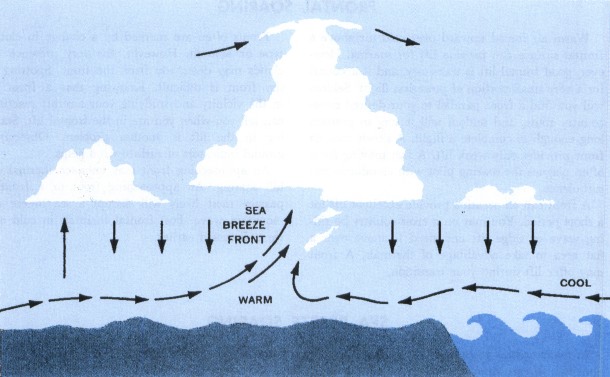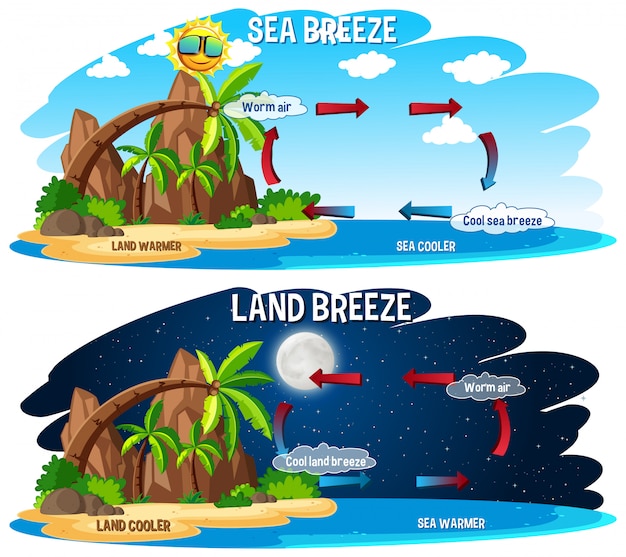
In this case, it is air above the warmer surface water that is heated and rises, pulling in air from the cooler land surface. Since the sea breeze owes its existence to the enhanced heating of the land under the Sun, it follows that at night, when the land cools faster than the sea, a land breeze may develop. A very hot summer Sun may cause a sea breeze of up to 15 mph along the coast, felt in decreasing strength 20 to 25 miles inland. This is the sea breeze, and can offer a pleasant cooling influence on hot summer afternoons when further inland the heat may become oppressive. The sea breeze and land breeze prevents the extreme temperature in coastal areas.

Here are some of the important impacts of sea and land breeze: The air of coastal areas carries much more humidity than the inland areas due to the moisture-laden sea breeze. To replace the rising air, cooler air is drawn in from above the surface of the sea. The micro-climate of the coastal areas is greatly affected by the land breeze and sea breeze. As a normal phenomenon air from the high-pressure area (land) rushes towards the low-pressure area (sea) creating a breeze that is termed as a land breeze. On a warm summer day along the coast, this differential heating of land and sea leads to the development of local winds called sea breezes.Īs air above the land surface is heated by radiation from the Sun, it expands and begins to rise or convect, being lighter than the surrounding air. A land breeze is a breeze that flows from the land to the sea. When the Sun heats it, it takes much longer for its temperature to rise. Both the land breeze and the sea breeze are affected by the convection phenomena. So, you can remember that a land breeze goes land to sea and a sea. a thermally produced wind blowing from a cool ocean surface onto adjoining warm land. Direction: A land breeze blows from land to sea, while a sea breeze blows from sea to land.


Water for example, has a much greater heat capacity than soil and rock. a coastal breeze blowing at night from land to sea, caused by the difference in the rate of cooling of their respective surfaces. Temperature differences at the Earth’s surface occur wherever there are differences in surface substances.


 0 kommentar(er)
0 kommentar(er)
